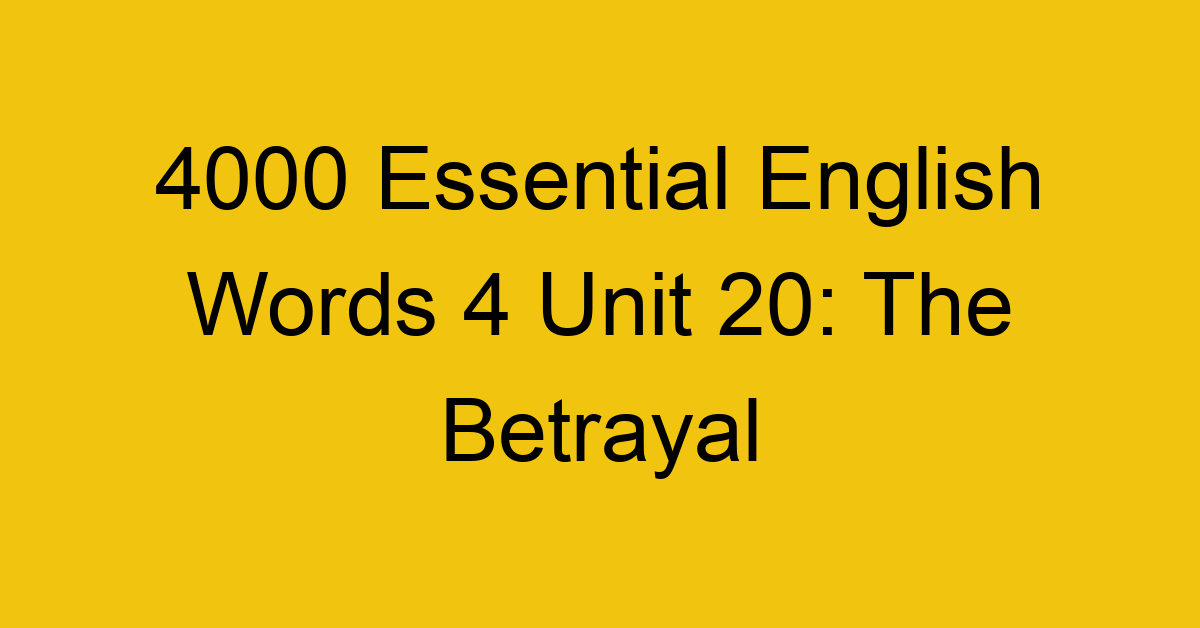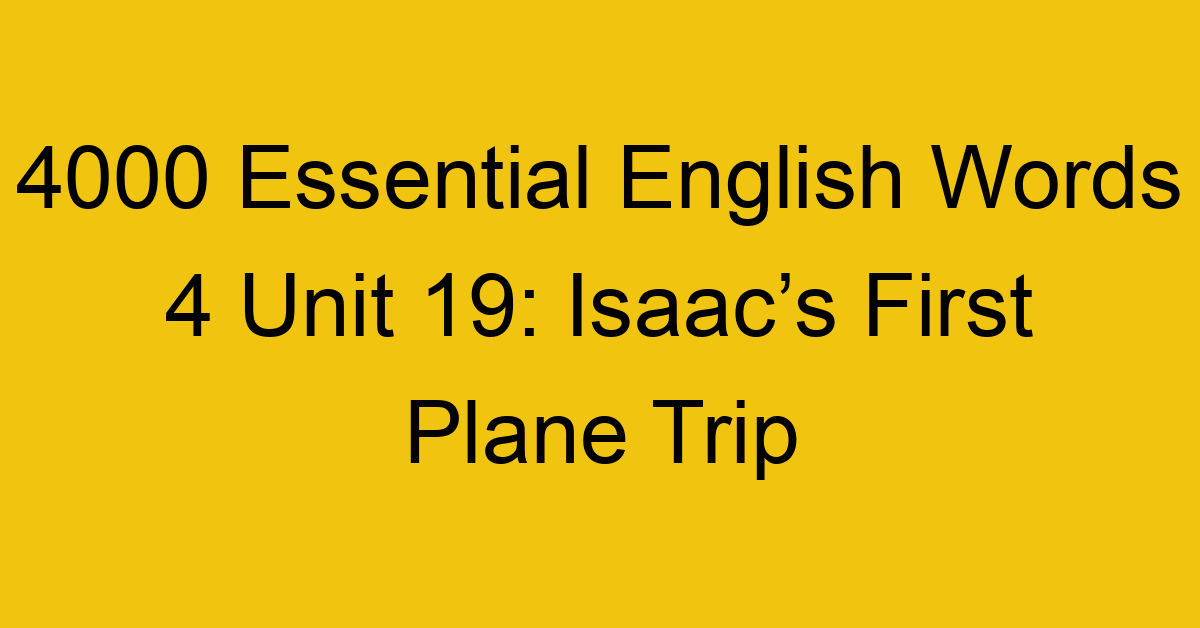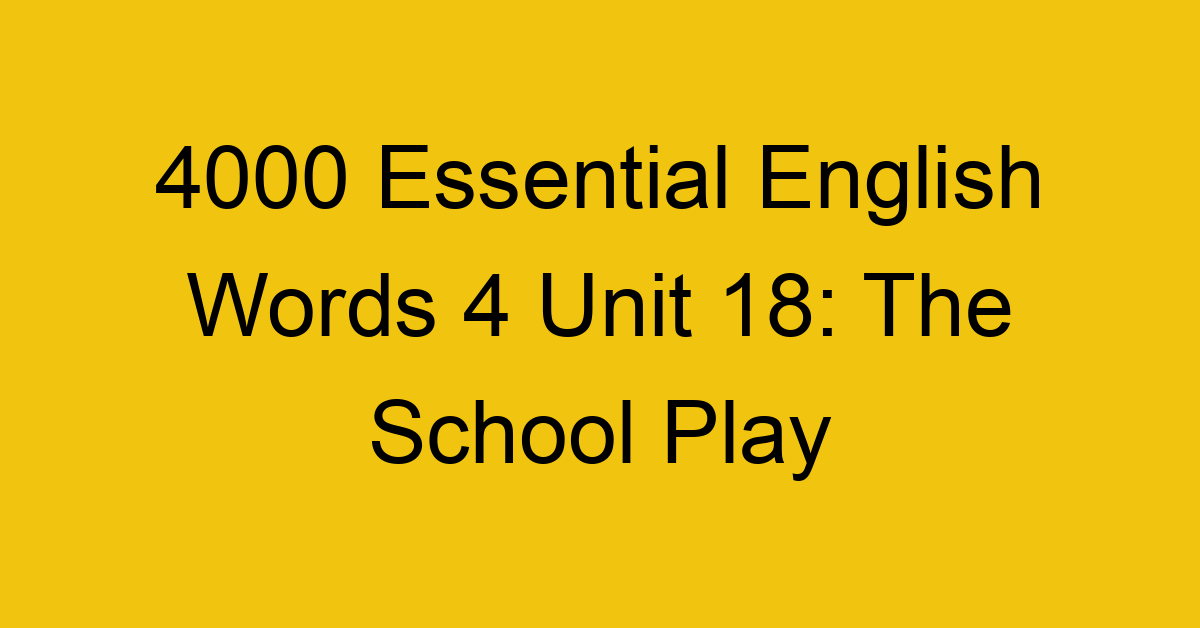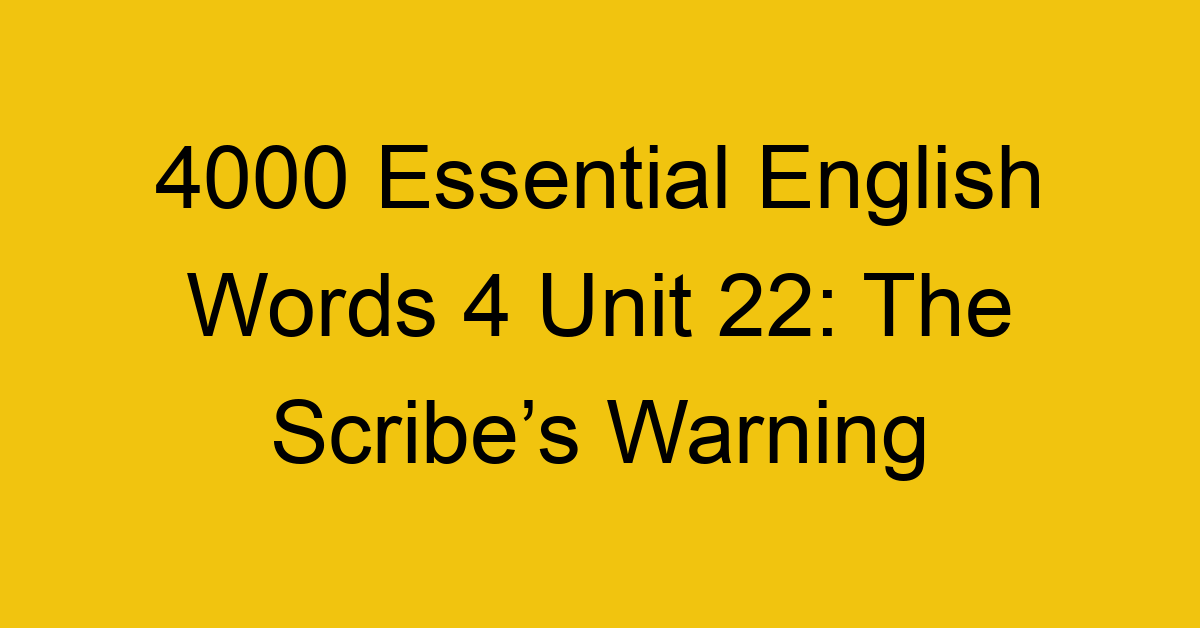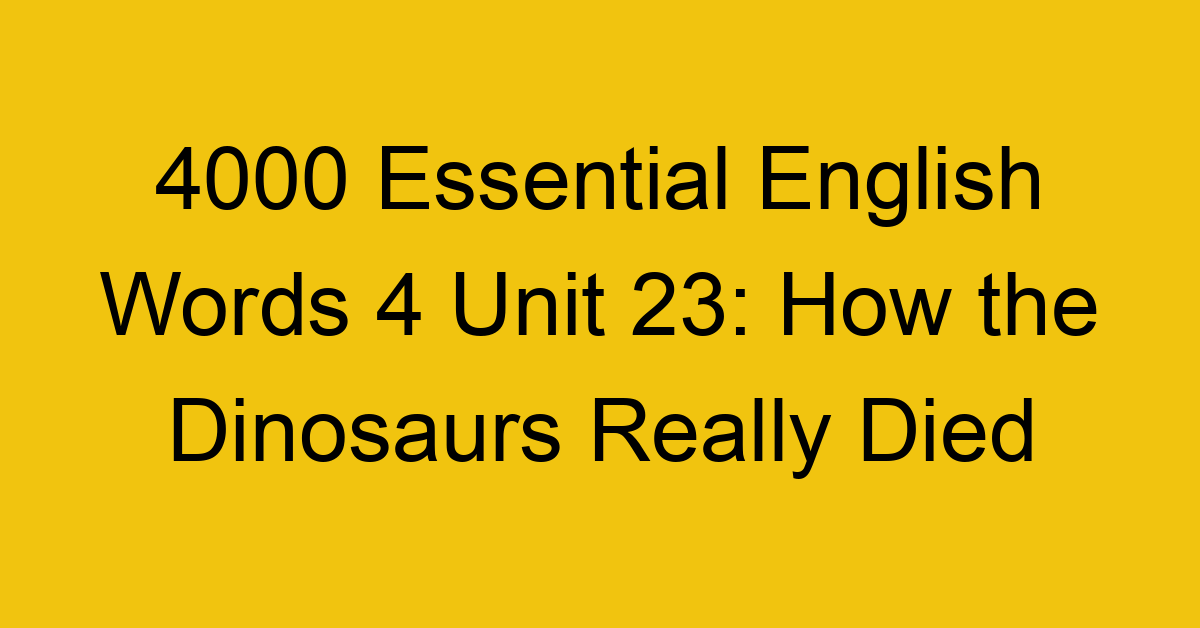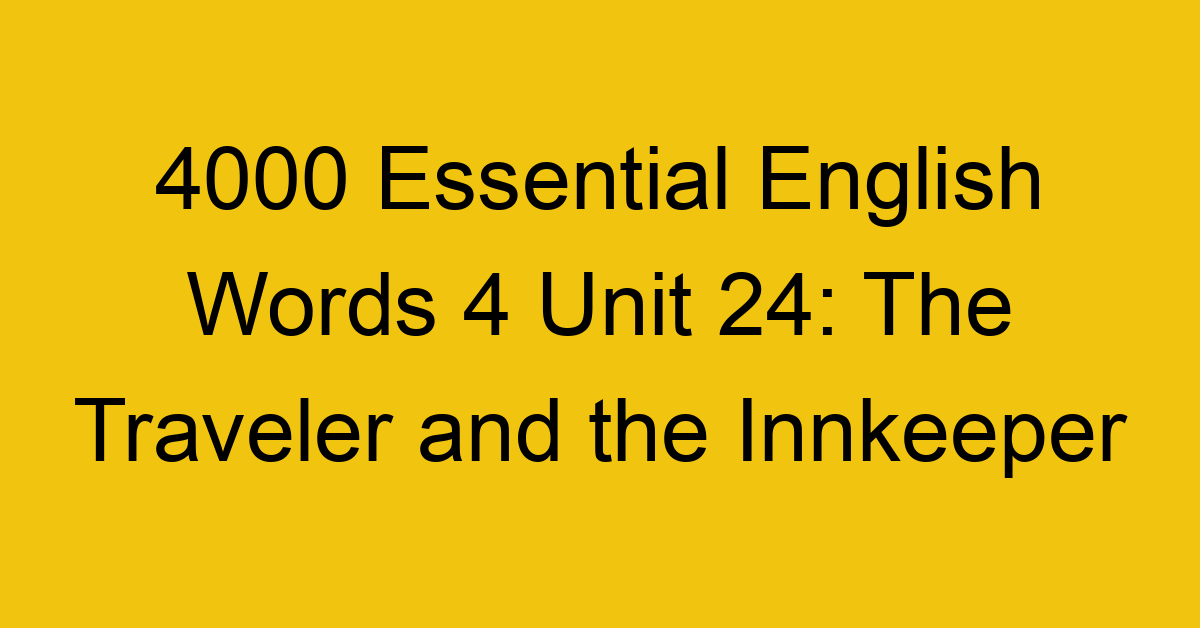4000 Essential English Words 4 Unit 21: The Teller and the Thieves
Word List
- background [ˈbækgraund] n.
A background is a person’s education, family, and experience.
→ The new teacher had a background in science and math.
- bait [beit] n.
Bait is something used to trick a person or thing to do something.
→ The best bait for catching fish is a big, fat worm.
- chronicle [ˈkrɒnikl] v.
To chronicle something means to record an event or speech.
→ The daily newspaper chronicles local and world events.
- copper [ˈkɒpər] n.
Copper is a red-brown metal often used in electric wire and pipes.
→ Ancient hunters melted copper to make knives and spears.
- disease [diˈziːz] n.
A disease is an illness that causes specific problems.
→ He had a disease that caused him to lose his hearing.
- folklore [ˈfouklɔːr] n.
Folklore is the collection of beliefs and stories of a culture.
→ India’s folklore has stories written in long poems about great warriors.
- infect [inˈfekt] v.
To infect someone means to give them an illness.
→ The common cold infects hundreds of millions of people each year.
- itch [itʃ] v.
To itch means to rub the skin with your fingernails.
→ The rough fabric in his shirt made the back of his neck itch.
- literature [ˈlitərətʃər] n.
Literature is books, plays, and poetry.
→ Early American literature covers the poetry and stories from 1500 to 1800.
- millennium [miˈleniəm] n.
A millennium is one thousand years.
→ Stonehenge is believed to have been built about 5 millenniums ago.
- myth [miθ] n.
A myth is a traditional story that explains a culture’s history and beliefs.
→ In Greece, there was a myth about a woman who had snakes for hair.
- relate [riˈleit] v.
To relate to something means to have a connection with it.
→ A company’s plan usually relates to how much profit it can make.
- religion [riˈlidʒən] n.
A religion is a belief in a god or gods.
→ Their religion taught that people should forgive their enemies.
- sum [sʌm] n.
A sum is a specific amount of money.
→ He calculated the numbers to see what the sum of his bills would be.
- teller [ˈtelə:r] n.
A teller is a person who works with a bank’s customers.
→ The teller at the bank helped Kelly put money into a savings account.
- trustworthy [ˈtrʌstˌwəːrði] adj.
If someone is trustworthy, they are honest and truthful.
→ Mary is one of the most trustworthy people I’ve ever met.
- update [ʌpˈdeit] v.
To update something means to make it more modern.
→ We need to update the programs on our computers.
- vein [vein] n.
A vein is a tube in the body that carries blood toward the heart.
→ The blue veins in my hand are just under my skin.
- venom [ˈvenəm] n.
Venom is a poisonous substance that comes from animals or plants.
→ A snake’s venom can be used to cure the illnesses it creates.
- promote [prəˈmout] v.
To promote someone means to raise them to a higher position or rank.
→ After two years in the company, she was promoted to a manager.

